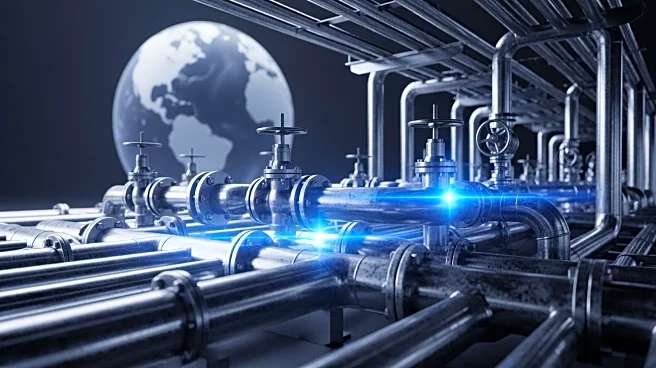What is the story about?
What's Happening?
European Commission President Ursula von der Leyen has urged EU member states to impose new sanctions on Russia's liquefied natural gas (LNG) exports and its shadow fleet of oil tankers. The proposed sanctions are part of the EU's response to Russia's ongoing war in Ukraine. Von der Leyen emphasized the need to 'turn off the tap' on Russian LNG to pressure Russia into negotiations. The EU has already implemented 18 sanction packages, targeting over 2,500 entities, including banks, ministries, and energy companies. The new measures aim to further restrict Russia's energy revenue, which is crucial for its economy and military funding.
Why It's Important?
The proposed sanctions are critical as they target the core of Russia's economic strength—its energy sector. By cutting off LNG exports and targeting the shadow fleet, the EU aims to diminish Russia's financial resources, potentially impacting its military operations in Ukraine. The sanctions also reflect the EU's strategic alignment with international partners to isolate Russia economically. This move could lead to significant economic repercussions for Russia, potentially forcing it to reconsider its military actions. The sanctions also underscore the EU's commitment to supporting Ukraine and upholding international law.
What's Next?
The proposed sanctions require approval from all 27 EU member states, a process that could take time due to the need for consensus. If approved, the sanctions could lead to increased economic pressure on Russia, potentially affecting its military capabilities. The EU will continue to monitor the situation and may consider additional measures if necessary. The international community will also be watching closely to see how Russia responds to these sanctions and whether they will lead to any changes in its approach to the conflict in Ukraine.















